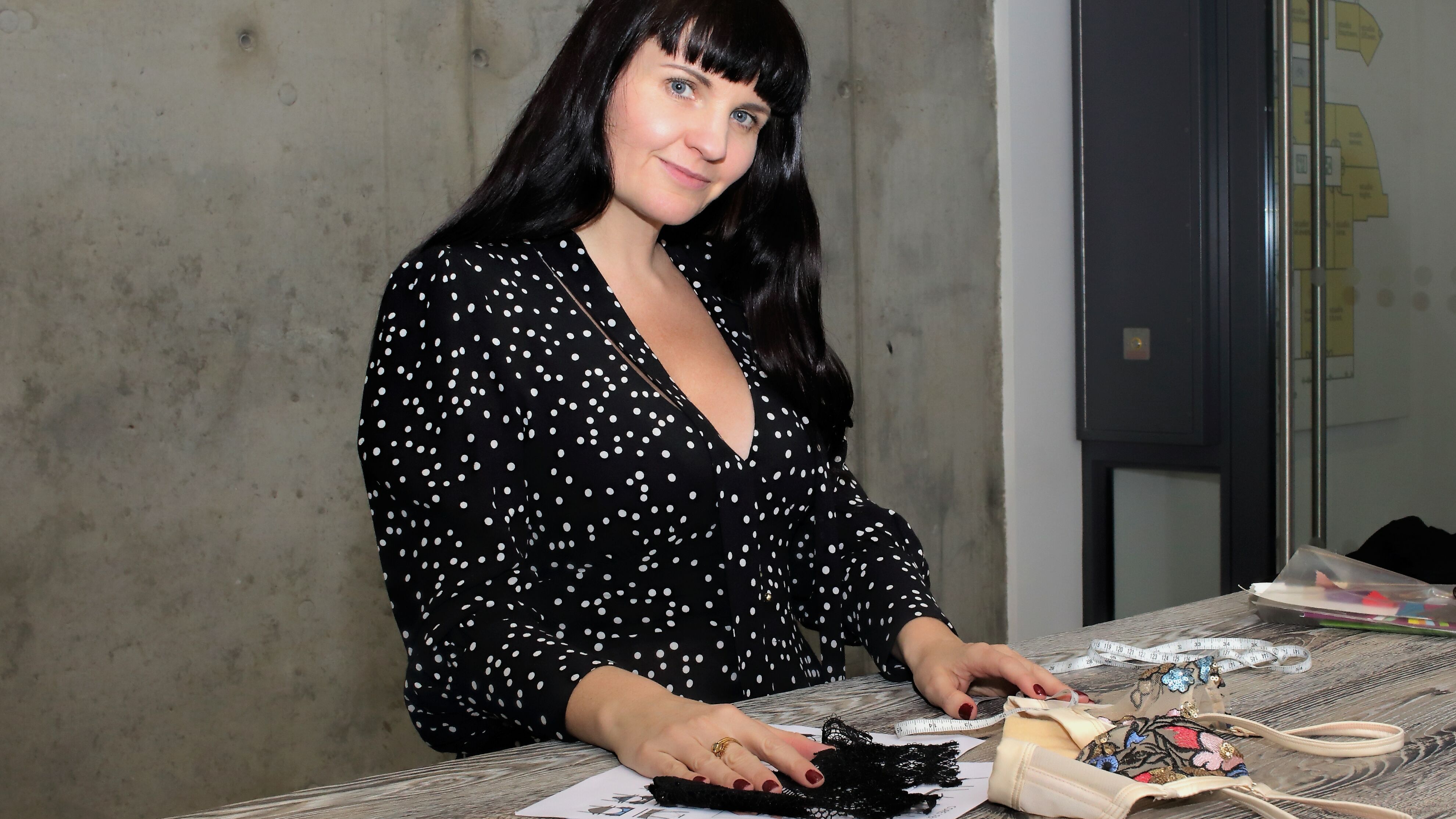
The future of cryptocurrency and blockchain – interview with Nick Pateman
Background
Nick co-founded SEO consultancy Inbound (now Boss Digital) in 2010, leaving 6 years later to build an affiliate network that now generates over half a million unique users each month through content marketing and SEO and founding his business W4 Digital.
Nick has a keen interest in emerging markets, developing one of the most popular web apps for the cryptocurrency Ethereum in 2016 and one of the first Bitcoin casino affiliate portals in 2011. SickOdds.com was founded in 2016 with a vision that esports betting revenues would one day surpass traditional sports betting. The website was built exclusively for esports fans, offering live in-play odds comparison, match previews, betting tips and bookmaker comparison.
With a wealth of experience in all things crypto, we caught up with Nick to get his take on the future for blockchain and cryptocurrency.
What drove you away from SEO?
The affiliate marketing I was doing was driven by SEO and generating traffic through Google searches directed to partners to take commission. The appeal was a combination of passive income and the web development and technical side. I built a website, generated traffic through Google searches from what I knew about SEO and had some fun! It was a transition that became an income and a big draw for me. Building a network of websites and creating success from them came from identifying niche opportunities whose SEO had no competition, making it possible to rank at the top of Google very quickly for key search terms.
That kind of business model is difficult now as so many people are doing it, but that’s how it started and then we branched out into other niches where the market wasn’t yet established.
One of your websites was in the top 1000 most ‘hit’ in the US at one point! That’s no mean feat, how did you manage that?
For a few months in 2017 there was a massive crypto bubble (one of many) that drew huge attention to everything. I had a website in the cryptocurrency space that attracted over a million visits a day for a short period. It was short lived and then returned to a strong base, but to hit that traffic volume was a huge surprise. I had built the website for myself, with no intention to monetise it, but a popular side tool ended up generating significant revenue, without any pressure on me.
You’re an early adopter of crypto. For the benefit of anyone like me that is a little bit hard of thinking, can you briefly explain blockchain and crypto?
It’s a big subject to cover but I’ll try to simplify it into two steps – blockchain and then crypto.
Blockchains provide extremely valuable utility, whether that’s Bitcoin as a payment mechanism or a store of value or Ethereum, which is like a general computer that transfers the value of currency, property, identity or pretty much anything. You then have cryptocurrencies that essentially secure those blockchains and incentivise that security.
Then there are the miners and they’re incentivised with these cryptocurrencies to secure the blockchain’s resilience against fraud or other attack. Lots of people demand to use the blockchain and that demand drives the price, which increases security. I think that’s probably the simplest way to explain it.
What got you interested so early on?
My brother introduced me to Bitcoin via a Facebook message in 2011, as he thought I might like it. What was weird was the timing because I was playing a lot of online poker at the time. In 2011 there was a ‘Black Friday’, where the US (pretty much out of the blue) banned online poker.
The poker rooms I was playing in, like PokerStars, shut down for a period and lost most of their US user base. It wasn’t a huge market but a lot of the activity moved to Bitcoin. Then it was just play money – Bitcoin was around $10 and there wasn’t huge liquidity on exchanges, so you couldn’t buy or sell large sums. People just put in the odd £10 or £20 and started to see growth. That got me interested in Bitcoin and its value as a peer-to-peer currency. It didn’t need any banking intermediaries, which was novel at the time. Back then there was no expectation this would have any significant value. The digital gold narrative had certainly not come together!
Bitcoin is seemingly the most popular, but there are many other players, so what happens when Bitcoin hits its ceiling of 21m coins?
There is a limit for Bitcoin of 21 million coins, we’re now at 16 or 17m. Bitcoin issuance halves every four years and so the 21 million Bitcoin won’t be mined for about 100 years, so won’t be felt by even the next generation.
Bitcoin being the first brings an advantage and creates noise. When you read a relevant news article, it almost always leads with Bitcoin. Most other assets correlate with Bitcoin, so if you talk about Bitcoin, you are pretty much talking about the whole market price and value. It’s also important that the value of Bitcoin is easy to explain and everyone gets the narrative of digital gold. It’s got this hard cap of 21 million coins and it can be transferred anywhere almost instantly on the internet. There are no banks and no central point of failure. Digital gold is a strong descriptor, whereas when you try and explain Ethereum you talk about a smart contract platform where people transfer value. What kind of value? Currencies but also NFT (non-fungible token), identity, real world assets and debt and other things. So it doesn’t have the simplicity of Bitcoin.
I think at a fundamental level, Bitcoin is already behind Ethereum and doesn’t have any more fundamental value. Ethereum has the most liquidity of any currency and so institutions, even potentially governments, can buy in size without moving the market too much.
So for you, Ethereum is a stronger contender – and the rest of the world just needs to catch up?
You see metrics such as number of transactions on Ethereum that far exceed what’s happening on Bitcoin but probably the better comparison is transaction fees. This is a good proxy of demand and the transaction fees on Bitcoin are a fraction of those on Ethereum, so I think that’s a strong indicator that the market demands Ethereum rather than Bitcoin.
Whether that translates to a higher market cap of Ethereum than Bitcoin is yet to be seen but things are moving in the right direction. There are also other things with Ethereum, such as its move away from proof of work. The process of mining Bitcoin is very energy intensive and Bitcoin has no plans to move away from that. It would be far too contentious to move Bitcoin to something more environmentally friendly whereas as soon as this year, Ethereum is going to move to what’s called proof of stake. So rather than putting in energy to secure the network, you’re putting up a stake which guarantees the security of the network. That will cut its greenhouse emissions by over 99%. It’s no worse than having a single computer – in fact probably cheaper because you don’t need a powerful computer to run it and do the equivalent work as a miner for Bitcoin. I don’t think that narrative has been picked up yet. Also coming is the green blockchain which will set it off and surpass Bitcoin’s valuation.
With more and more companies now accepting crypto currency how do you expect legislation to change?
I’m not hugely familiar with the legislation other than it’s very grey, at least in the US. I think there are lots of complaints over there because private companies want to do things, but they’re not sure where they stand in terms of regulation or the law. Judging by what I read in the papers and other research, there’s an acceptance, or at least understanding, that this technology is valuable and should maybe not be embraced yet but left to its own devices, to see what comes of it. That’s the way I hope this happens.
In China they’ve gone down another route – their digital currency the Renminbi is a programmable currency. I don’t know the full details but it’s like Ethereum but not open to the public. With Ethereum, anyone in the world can build on that technology that can create software for Ethereum, which they can then deploy. But with Renminbi, it’s a centralised top-down digital currency, and I think when it comes to the UK, USA and the West in general, I can’t see them competing with China in a public-led digital currency. Whereas if they embrace and compete through the private sector and the innovation that happens there, that might give the competitive edge.
As one example, there was recently an article about programmable pound sterling that could be used to restrict people from spending it in certain ways. They took a lot of flak but there’s some interesting stuff there. For example, currently energy prices are through the roof, so imagine if you could distribute a digital currency that could only be spent to pay energy bills, and you could carefully target that money to the right people. I don’t have huge confidence that the UK Government would be able to do that in an effective way, whereas an incentivised private sector could create programmable money. Hopefully we will see proof of concept soon and the authorities may see the value and begin to embrace it.
What are your thoughts on the current banking system and how do you feel De-fi (decentralised finance) could affect this, if not already?
I’m still waiting for the Monzos and Revoluts of this world to start doing interest rates based on those in decentralised finance. Because 5-10% is standard in what are, I would say, very safe pound or dollar denominated savings accounts, because demand for liquidity on chain is high. I think maybe the biggest impact would be cost reduction and efficiencies. On Ethereum, although you could defraud people further up the stack, at the very low level of the protocol, fraud is just impossible. That has benefits higher up and could help remove a lot of the fraud issues that we see in traditional banking. Counterfeiting isn’t possible either – as far as cryptographers know that sort of thing just physically, mathematically cannot happen. Then when things like identity move onto chain, we’ll have credit-based systems where people can borrow against their identity without speaking to anyone, they’ll just click a couple of buttons and it’ll be based on reputation, identity and ‘on-chain’ transaction history.
Right now, all the debt that’s generated on chain is backed by collateral and has automated liquidation systems so that if the value of the collateral falls, your position is liquidated. So anyone financially minded could just jump in and start interacting with complex financial software – you don’t have to sign a single piece of paper. As I say, you don’t have the fraud risk, although you do have other risks such as smart contract risk and currency volatility.
There are lots of nuances in the space, with the likes of staking, peer-to-peer lending, NFTs, De-fi etc, so where and how do interested people learn about it? It needs the lay person to understand and adopt it due to the positive attributes.
I started so long ago that I’ve kind of learned everything as it’s come along, because it was so small when it started and there were only a few things you could do, but now it’s just ballooned. Probably the best way is to just use the technology. When I say that, I don’t mean Bitcoin because it’s very simple – digital gold. Put it in a hardware wallet. Keep it safe. Don’t look at it for 10 years. Whereas with Ethereum you’re generating strategies and interest rates you can look at or as I’ve done in the past, borrow against assets and take out pounds to spend in the real world, so I’d say the best way to learn is to start using it.
Unfortunately, Ethereum is in high demand, so the transaction fees are not small. You can’t really get effective use from the main Ethereum chain right now, unless you have $20,000 or pounds or more, because fees can be as high as £100 per transaction.
There are layer two chains that are coming out, which are leading edge and use the security of Ethereum. They have the scale of a new chain and transaction fees there can be a few pounds so you can practice and play with much smaller sums. I’m not sure if it’s ready yet, but Coinbase by Ethereum, one of the bigger exchanges, will have withdrawals to layer two blockchains. So you can deposit pounds in Coinbase, then withdraw to Arbitrum or Optimism (layer two blockchains) and start playing with decentralised apps.
I can’t think where you’d go for a list of all the decentralised apps, but there are communities on Twitter, Reddit and Discord that are usually the best way to jump in. A lot of activity happens on Twitter, so follow some hashtags they are following plus other influencers to get an idea of what you might be able to play with. The simplest thing would be to get some Ethereum, go to compound.finance (one of the on-chain lending and borrowing protocols) and deposit there or take a loan at a relatively small interest rate, to see how it works. If it interests you, you’ll probably end up looking a bit deeper.
Considering recent political and geo-political events, how do you see cryptocurrency playing a part (if at all) in helping to solve some of these issues?
I can see cryptocurrency playing its part for sure because it’s programmable. In the US they sent out approximately $1200 in stimulus cheques to every citizen. I imagine that was an administrative nightmare. Imagine instead if everyone who had an internet connection also had a cryptocurrency wallet, you could distribute those funds easily. And let’s imagine not just that, but also that their identities were on chain. And not in a Big Brother way. The technology is evolving so that your identity and a lot of information about yourself is on chain, but in a way that is secret and you can prove certain things about yourself but it’s not publicly visible. So you have a secure key that can then be used to sign messages – you could have all your important information on chain and then funds from a centralised government could be distributed programmatically and quickly to the people that need it. It’s a long way off, 5-10 years, and depends on how quickly Governments investigate and get involved.
But it’s huge! Over $100 million was donated from cryptocurrency holders into the Ukrainian donation address and you could see on chain all the addresses sending this money, so it’s nice and transparent. It wasn’t like a siloed database tracking things without being public. And you could go further – you can see what’s where, where that money is sent after the Ukrainian donation wallet.
Eventually, we’ll find ways to make it even more transparent, easier to understand, so you could donate for a specific reason and see it spent in a verified way. This would generate much more engagement for people that want to donate because how much better would it be to see it go to the right place?
And you have the other side of what’s happening in Ukraine, with reports that Russia is perhaps trying to avoid sanctions with things like Bitcoin. So you have, as with any technology, both good and bad. Ethereum and Bitcoin are neutral technologies – just like the internet, they don’t pick a side. It really is a case of the human innovation that happens on top, with the morally positive hopefully hugely outweighing the negative.
From a global geopolitical viewpoint, this technology has a huge amount to offer and Ukraine is an early indicator of how this could gain traction.
People talk about the risks around cryptocurrencies, what would your response be?
I’ve had people mention risk for a long time now and yes, there are huge crashes but there is a strongly upwards long-term trend. So if you buy into this, look at a 5-10-year time horizon and genuinely ignore it. Imagine how you would feel if this fell to 20% of its value and if your response is to hold or accumulate, I think you’re probably in a good mindset for getting into it.
Bitcoin has been around for 12 years and secured billions of dollars of value and no one’s successfully hacked it, so I think technology risk is minimal. The outstanding risk is regulation and the hope is that this technology is seen as a good thing and regulators embrace it. So if you’re positive on the regulatory outlook and you have a 5–10-year time horizon then the risk should be minimal and the upside potentially huge.
In terms of SME business owners, what would your advice be on how to utilise the technology of the blockchain and cryptocurrencies to innovate and become a market leader in their space?
Honestly, I’m not sure a huge proportion of existing SMEs can integrate the technology – some can but generally SMEs can’t add blockchain tech in any meaningful way. There are lots of start-ups, particularly financial companies, that are crypto native, fundamentally built on this tech.
Where there is an opportunity is adding Ethereum or Bitcoin to your balance sheet to benefit from the potential upside, if you’ve got assets sitting idle and there is some level of risk tolerance within the company. Having Ethereum on your balance sheet and staked in something where it’s earning a safe 5-10% yield – that could work!
We’re seeing companies that are building a war chest of Bitcoin but having Ethereum on your balance sheet is about generating yield. Blockchain solutions, particularly Ethereum, will dominate the future of commercial value and having exposure to the massive potential growth is surely sensible.
Quick fire questions:
Beach or mountain
Fine wine or cocktails
Home working or office
Fast car or luxury
Movies or books
Favourite movie? One of the last I watched – The Lighthouse with Willem Dafoe and Robert Pattinson. Very strange, but it’s stuck with me and so I’ll have it as my favourite for a little while.
Guide to selling your business
Your simple guide to helping you maximise the value in your business.





